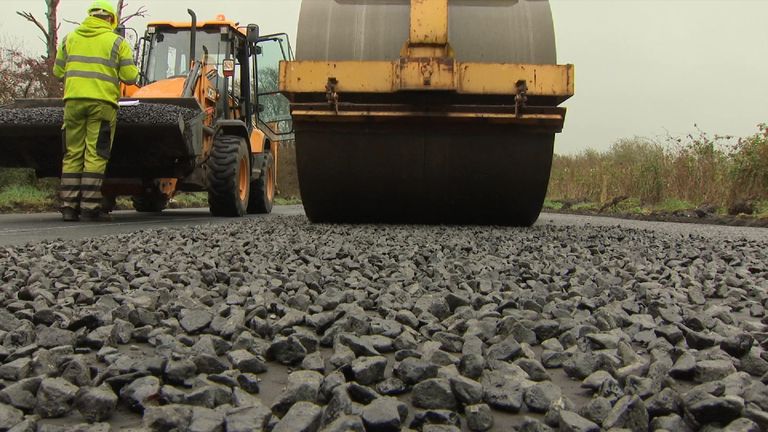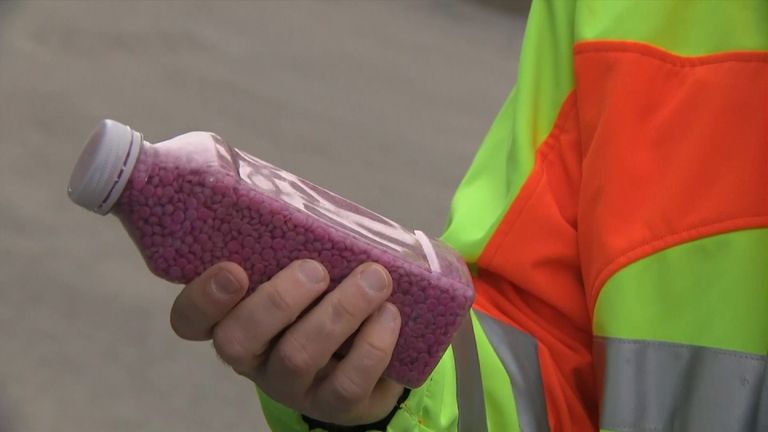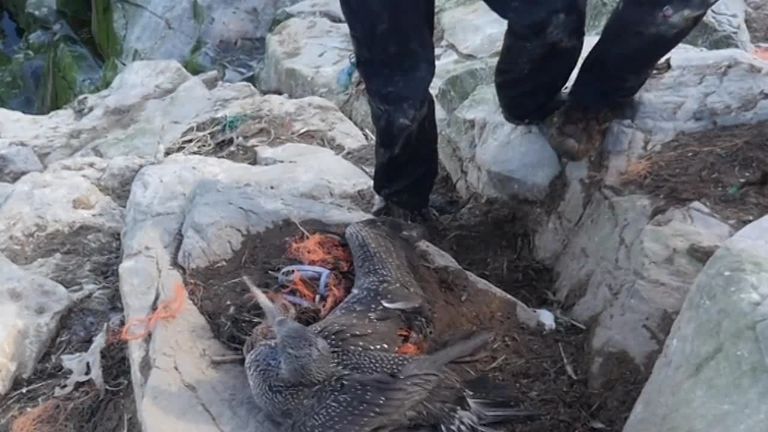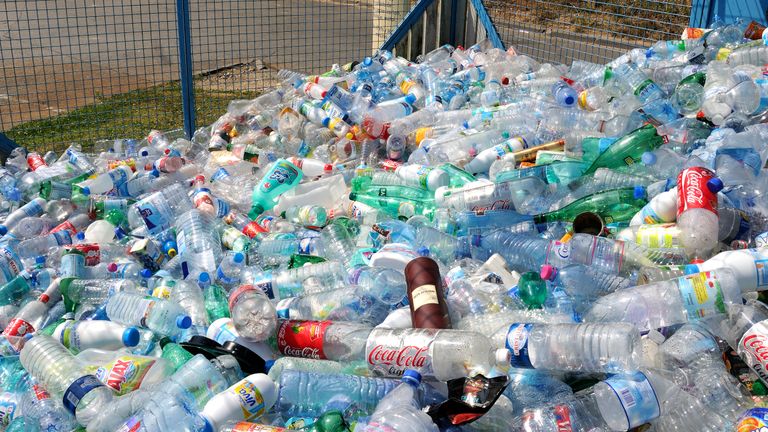Plastic bottles and bags recycled to build roads
A process that creates plastic pellets from bottles and bags and melts them into asphalt makes for stronger roads and less waste.
Saturday 28 October 2017 06:18, UK
Plastic bottles and bags are being recycled into asphalt mixture to produce roads that are kinder to the environment and, manufacturers claim, longer lasting.
A number of councils around the UK are testing the 'plastic roads'.
The process involves making plastic pellets from bottles and bags that would otherwise be destined for landfill sites. The pellets are then melted into the asphalt mix to act as a binding agent.
Plastic makes up roughly 0.5% of the mixture.
Toby McCartney, of MacRebur Plastics Road Company, told Sky News: "We're able to take the waste plastics that are destined for landfill, we take those plastics and we add them into an asphalt mix to create a stronger, longer lasting road.
"It makes the end performance of the road much greater and we replace part of the bitumen in the mix, that's the fossil fuel.
"Our analogy is that traditional bitumen is a bit like a Pritt Stick - what we have is a superglue. It binds the stuff together to form a stronger and longer lasting bind, so we have less flaking of anything coming off.
"There's less maintenance needed for those roads and we're saving (councils) money by using up local waste for local roads."
Three councils: Dumfries and Galloway, Cumbria, and Enfield are testing the 'plastic roads'. They stand to make financial savings.
Councillor Elaine Murray, leader of Dumfries and Galloway Council, told Sky News: "There would be (less) landfill tax because we're not sending plastic into landfill.
"Although, at the moment, the pellets are slightly more expensive than bitumen, bitumen depends on the oil price so that wouldn't necessarily always be the case. Also, it uses a lot less binder, so there's a saving there."
"It's really quite exciting. Instead of using bitumen, which is a product of the oil industry, it uses plastics which would normally just go into landfill.
"So it's environmentally friendly as well as being a good, hard surface for the road.
"Hopefully it will be more hard-working in the longer term and save councils money."
As much as the idea sounds like a winner in theory, in practice time will tell.
Sky News gauged the view of Dr Karl Williams, director of the Centre for Waste and Resource Management at the University of Central Lancashire.
He said: "I think it's too early to say how environmentally friendly these roads are because they are only going on trial roads at the moment, and in terms of what plastics they are using, where the plastic comes from and the level of contamination.
"There are lots of issues that are still big question marks."







